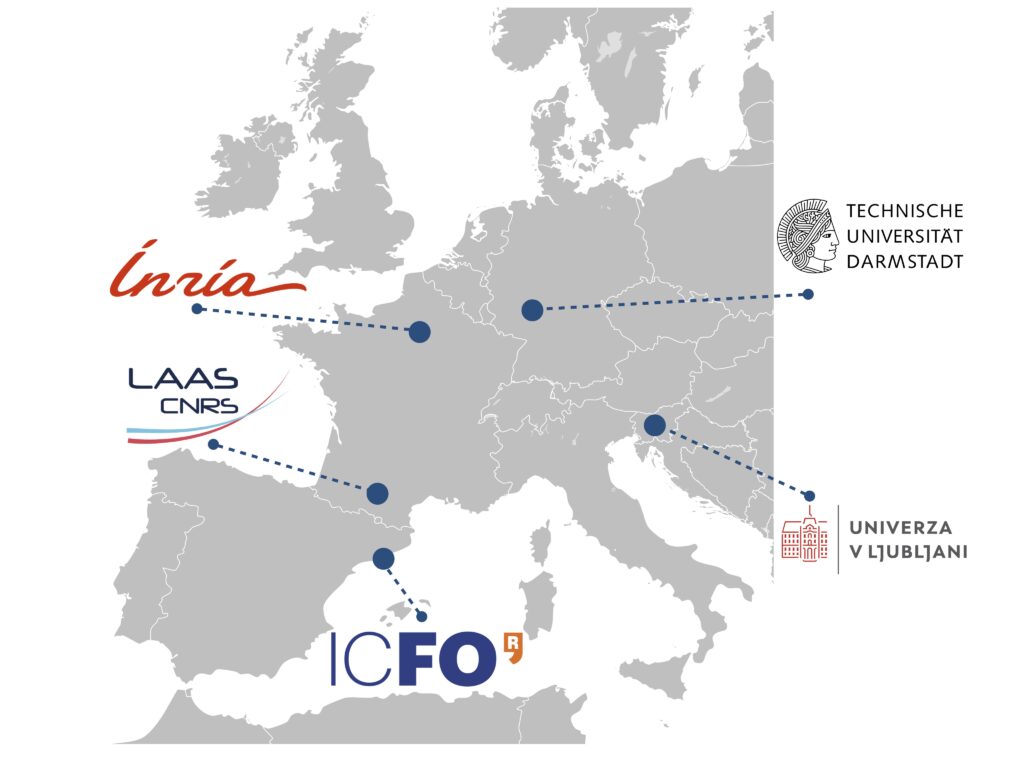The quantum internet will drastically change the way we process information, communicate and compute. The last decade saw the development of the first small-medium size quantum networks, prototypes of this ambitious long-term goal. These already existing real-world quantum networks open new possibilities for quantum information processing. New recent protocols show that they offer a radically new range of application of quantum technologies, e.g., for certification tasks based on Bell nonlocality of quantum correlations, cryptography, or fault-tolerant quantum computation. However, the potentialities they offer are primarily ignored: in nowadays experiments, quantum networks are mainly used to simulate single quantum states, e.g., the standard Alice and Bob scenario. Genuine quantum network protocols remain mostly experimentally infeasible due to their unrealistic theoretical requirements, e.g., in terms of noise.
With COMPUTE, we will drive the future development of quantum networks by (1) providing a coherent framework to guide the theoretical study and real-world development of quantum networks, (2) making possible the implementation of real-world quantum network protocols and (3) developing a framework for distributed quantum computing running on the quantum network architecture to outperform noisy intermediate-scale (single processor) quantum computers. From a methods perspective, COMPUTE will meet these objectives by dramatically improving existing noncommutative polynomial optimisation methods central to tackling quantum information problems. COMPUTE will (4) cross the traditional boundaries between the polynomial optimisation and quantum information communities by making the former’s tools accessible to the latter and the latter’s challenges available to the former.
The Consortium
Acknowledgement
We acknowledge fundings from the QuantERA II Programme, that has received funding from the EU’s H2020 research and innovation programme under the GA No 101017733.
We acknowledge Zulip for support to our project.




